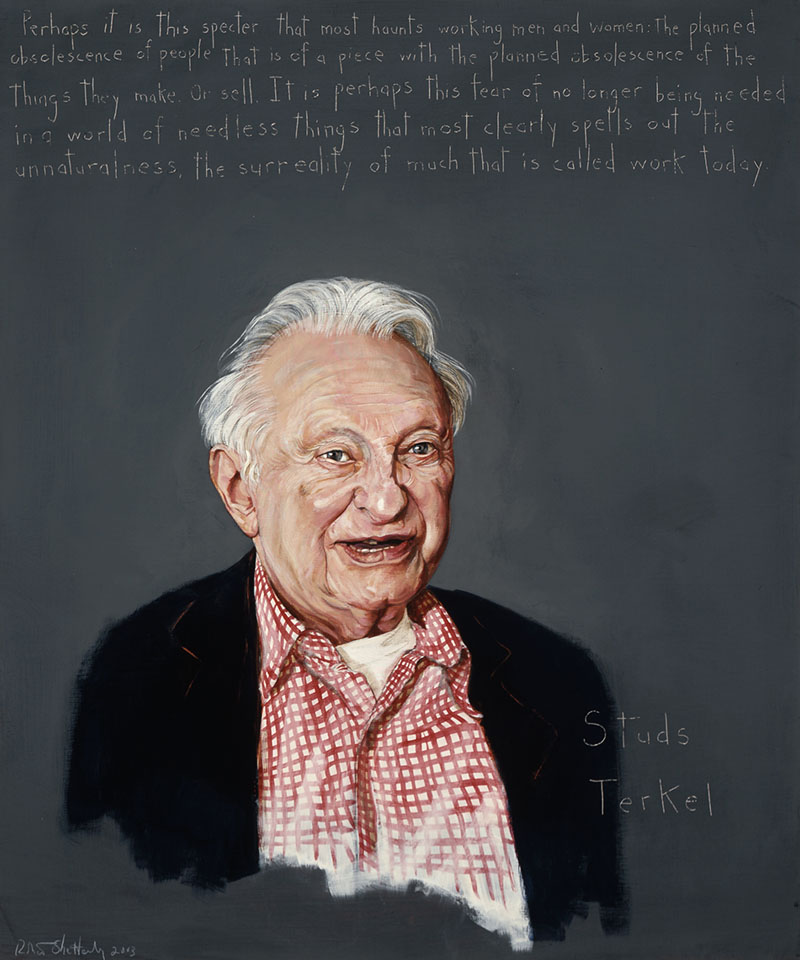
Louis ‘Studs’ Terkel
Social Historian : 1912 - 2008
“Perhaps it is this specter that most haunts working men and women: the planned obsolescence of people that is of a piece with the planned obsolescence of the things they make. Or sell. It is perhaps this fear of no longer being needed in a world of needless things that most clearly spells out the unnaturalness, the surreality of much that is called work today.”
Biography
Despite his almost complete identification with the Windy City, Louis Terkel — universally called Studs —was born in New York City. His family moved west not long before he became a teenager, and settled on Chicago’s West Side.
Since graduating from law school at the University of Chicago in 1934, Terkel worked as a radio producer, jazz columnist, sportscaster, playwright, and civil service employee. He has appeared on stage, in radio soap operas, on television shows including Ken Burns’s documentaries Baseball, Jazz, and The Civil War, and in a handful of movies, most notably 1988’s Eight Men Out.
He became famous as the host of a series of radio and television shows in Chicago starting in 1944. His television career was disrupted when he was blacklisted in 1953 for speaking out in favor of price and rent controls, against the poll tax and Jim Crow laws, and for refusing to cooperate with the House Un-American Activities Committee. He continued on the radio, however, with a daily music and interview show, The Studs Terkel Program, which ran from 1952 until 1997.
Studs’s nickname comes from the character Studs Lonigan created by James T. Farrell, one of his favorite writers. Terkel himself became an author in 1957 with Giants of Jazz, and since 1967 he has produced a dozen more books, mostly from edited interviews. These include Division Street: America, Hard Times, Working, Talking to Myself, Race, and The Good War, about World War II, which won the Pulitzer Prize in 1985.
Studs likes to call himself “a guerrilla journalist with a tape recorder.” More poetically, another writer calls him “the Walt Whitman of the radio waves.” He has been inducted into the American Academy of Arts and Letters and serves as distinguished scholar-in-residence at the Chicago Historical Society.
Programs
Americans Who Tell the Truth (AWTT) offers a variety of ways to engage with its portraits and portrait subjects. Host an exhibit, use our free lesson plans and educational programs, or engage with a member of the AWTT team or portrait subjects.

Education
AWTT has educational materials and lesson plans that ask students to grapple with truth, justice, and freedom.

Exhibits & Community Engagement
AWTT encourages community engagement programs and exhibits accompanied by public events that stimulate dialogue around citizenship, education, and activism.